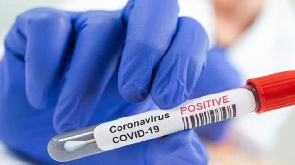The Center for Plant Medicine Research (CPMR) has confirmed the efficacy of Immunim Herbal product for the treatment of COVID-19 in Ghana.
Dr Kofi Donkor, the Head of Research and Innovation at the CPMR, said Immunim which contained anti-sars-cov-2 activity in vitro helped suppress the virus.
Immunim is a tincture prepared from the leaves of Azadirachta indica A. Juss. used as an immune booster prepared (Neem). It has been observed that one way of fighting Covid-19 is to have a robust immune system, hence, the prospect for Immunim in the fight against Covid-19.
He said chronic laboratory studies conducted also showed that the medicine was safe in curing the disease.
Dr Donkor said out of a total of 31 COVID-19 patients used in a clinical trial process, 90 per cent of them were completely healed proving the efficacy of the drug.
He made this known at the opening of the 1st Oku Ampofo Memorial conference on medicinal plants research in Accra on the theme: “Medicinal Plant Research: Innovation and Prospects in a Pandemic Era.”
“So, as far as we are concerned, at the preclinical level it is very promising to treat COVID-19 with Immunim, the Head of Research and Innovation at the CPMR, stated.
The three-day conference seeks to enable the Centre to showcase preliminary results from their on-going research project on the development of herbal products against COVID-19 with support from the COVID-19 National Trust Fund.
Dr Ernest Ofori Sarpong, Trustee of the COVID-19 National Trust Fund and Chief Executive Officer of Special Group of Campanies, commended the CPMR for the initiative.
He said successive governments had recognized the importance of traditional medicine with the formation of various associations to enhance its operations.
The existence of the Traditional Medicine Policy Guidelines document is an important step towards the integration of Traditional Medicine into the Health Delivery System of the country, he stated.
Dr Ofori Sarpong said the guidelines sought to provide a general policy direction or framework within which government’s short to long term plans on Traditional Medicine would be based.
It cuts across sectoral boundaries and provides a national position for which all sectors must buy into.
It is my hope that this policy would also provide for adequate and sustainable financial and logistical resources to help resource institutions like Centre for Plant Medicine Research, he added.
He said the provision of such resources would enable such research institutions and Centers like the CPMR to continue research into the identification and development of potent herbal products, for the treatment management, of common diseases like malaria, typhoid, hepatitis B, Asthma, as well as other viral diseases and even cancers and tumors.
Dr Ofori Sarpong called on the local Vaccine Development Project to collaborate with the CPMR and other institutions to see how best plant medicine could be incorporated in the Vaccine development project.
This would enable the country to derive the full benefit of the abundant plant medicinal resources which God has blessed the country with, he added.
Participants at the conference include research scientists, practitioners, manufacturers, and policy makers. Other key stakeholders from six countries across the world would deliberate on innovations and prospects of herbal medicine in a pandemic era.
Health News of Wednesday, 9 November 2022
Source: gbcghanaonline.com

















